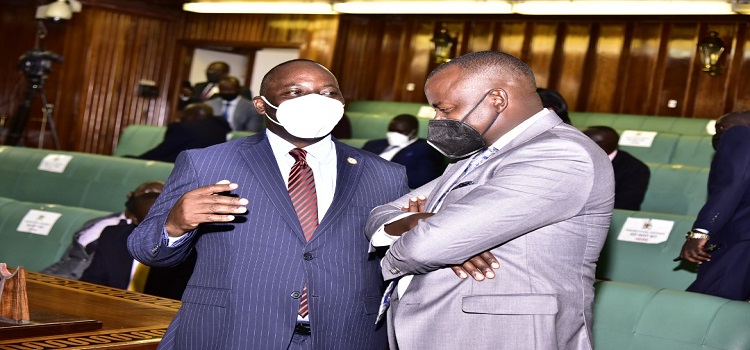Opposition MPs end plenary boycott, call for investigations into recent murders

eMPs from the opposition side Tuesday ended a week-long boycott of plenary, in protest of what they termed as the wrongful rearrest and incarceration of MPs Muhammad Ssegirinya (NUP, Kawempe North) and Allan Ssewanyana (NUP, Makindye West).
The two MPs are on remand over murder charges, with the state accusing the duo of having a hand in some of the killings that recently rocked the greater Masaka area.
Leader of the Opposition in Parliament, Hon Mathias Mpuuga, led his team back to the House, with a call to Parliament to investigate and get to the bottom of the killings, which have since polarized the country.
“We were not in exile…we only took a well-considered decision to retreat…Thank you for understanding us as presiding officers and the Members…because no one went out of their way to ostracise us,” he said.
He added: “We shall present to Parliament a motion for Parliament to investigate the murders and disappearances for the last 24 months.”
Mpuuga said their hard stance against the incarceration of the MPs is not premised on not wanting the duo to face the law, but that they are fighting the abuse of the process.
“We want to be well understood as Members of Parliament and as leaders…it’s not that we encourage crime, but we also understand that this is our country…when government is fighting crime, it must do so under the confines of the Rule of Law,” he said.
Deputy Speaker, Anita Among, has, to thaw the chilly relations between government and the opposition, convened a meeting slated for Thursday in her office, which will rope in Mpuuga, Security Minister Maj Gen Jim Muhwezi, and other leaders in security agencies.
“He [LoP] has mentioned state actors that we don’t know…whether from the army or Police… we shall interact and get more information,” said Muhwezi, who was also holding fort for Leader of Government Business in Parliament.
The recent wave of murders have stirred debate on the granting of bail and police bond to murder and capital offences suspects, with President Museveni vigorously arguing against bail, saying it is not fair for the victims of murder to have a suspect walking free after securing bail.
He is currently persuading the ruling National Resistance Movement Parliamentary Caucus to scramble amendments that have the effect of denying bail to suspects of capital offences.
Civil society activists and the judiciary are opposed to the plans.
